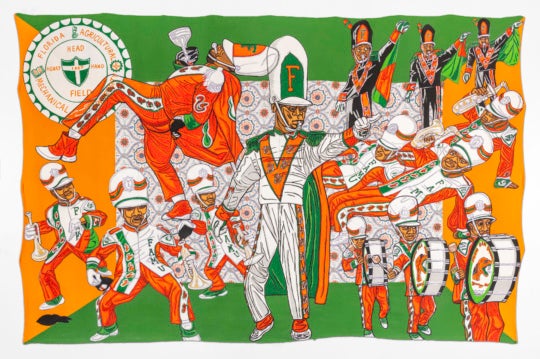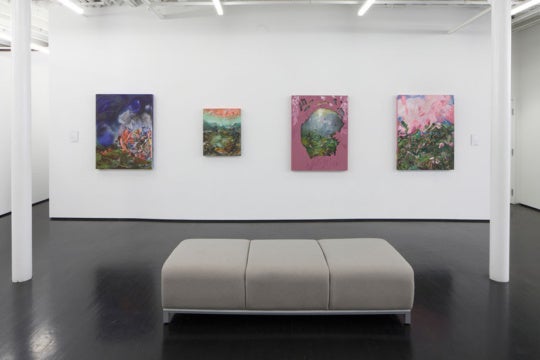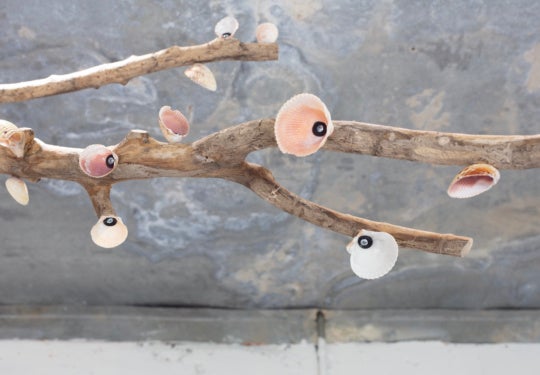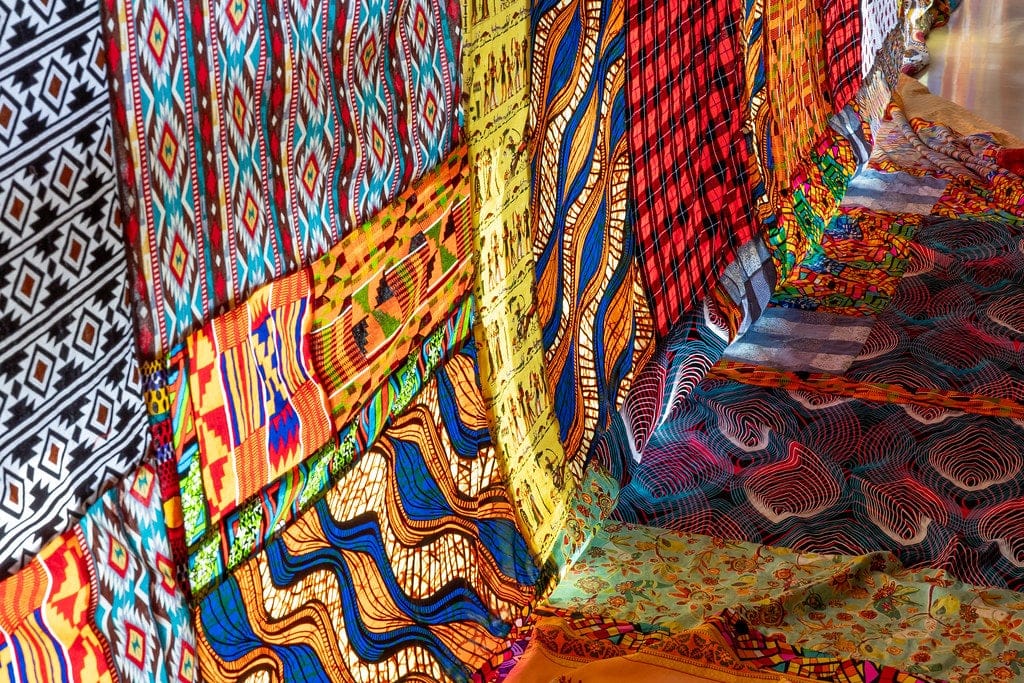
Life rewards the fearless, and Njeri Kinuthia is blessed. A textile artist and painter, she covers the windows of Dale Mabry Gallery with colorful, patterned fabrics from Kenya, her homeland, and some donated by women in Florida. With the Florida light shining through these fabrics—often worn as wrap-around skirts or headdresses—the gallery is transformed into a brilliant, searing, and sacred space. It evokes the feeling of an embrace, yet also an underlying current of urgency, even dread. At the center of the space is Hail Reverend Njeri (2023), Kinuthia’s likeness elevated on a white backdrop and preceded by a splendid train of Kenyan fabrics. Her chin is tilted as she wears a magnanimous look—a pose that commands admiration and respect. Her head is wrapped by a lime and golden-yellow headdress that resembles the shape of a Catholic cardinal’s mitre. This is Ukombozi: Reclaiming Place and Self.
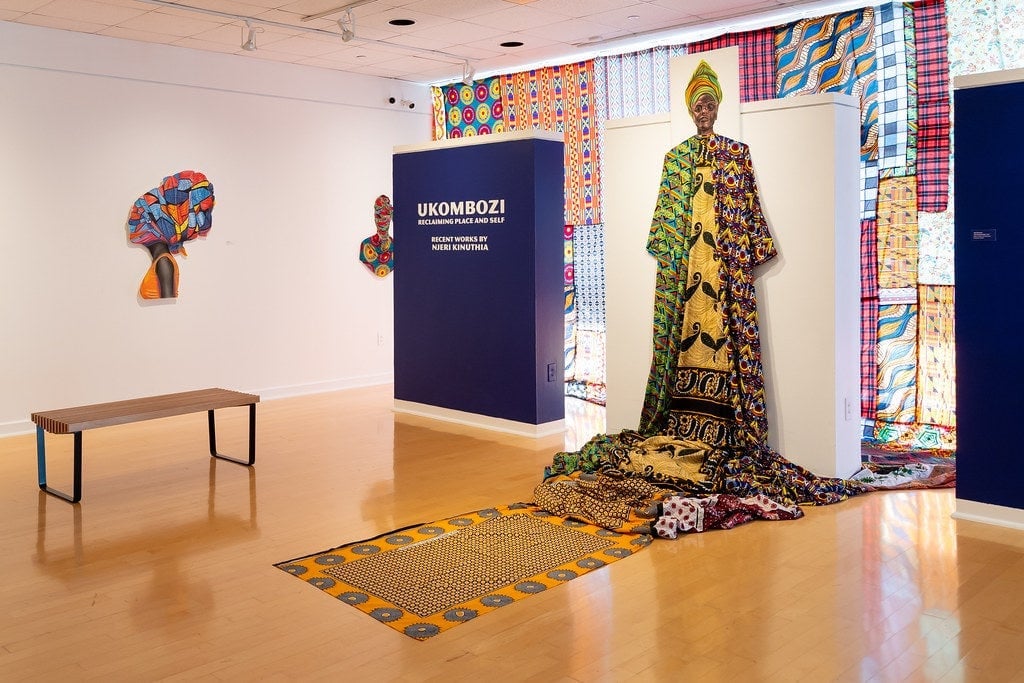
Kinuthia was born in Kiambu, Kenya and raised in the village of Thogoto. She is a member of the Kikuyu tribe, one of forty-two in Kenya that is related to the Bantu, and which is known for having produced among them many accomplished artists, musicians, and writers. In a previous conversation, Kinuthia described her childhood as a tight-knit community. At the same time, it was conservative and patriarchal, where women were raised and expected to become good wives and mothers. This made her feel stifled and repressed. Her pursuit of being able to express herself without second-guessing, of fearlessness and taking risks—leaving one’s home as a young woman and carving an art career in a foreign country—in order to have personal freedom, is evident in her work.
Kinuthia makes art with textiles that found their way to Kenya from Indonesia through the Dutch, Afrikaners who arrived in 1906, and brought with them goods, such as batik. Every fabric, with its rich array of colors and patterns derived from nature, communicates meaning or a certain sentiment. Equivocal communication, between women of Kinuthia’s tribe, is conducted through the use or exchange of textiles. In April 2024, I visited her studio at the University of Central Florida, where I was able to see some of these fabrics that were collected and sent to her by her mother. One of them bore a message at the seams: daima nitakukumbuka, which translates to I will remember you forever.
The use of these textiles allows Kinuthia to express her thoughts, experiences, and artistic practice in novel ways. As in daily life, it also shows emotions or ideas that could otherwise be unspeakable. It is a way to be forthright without being abrasive. To tell somebody how one feels or what one thinks in symbolic and discreet ways. It is being able to engage in difficult topics while still protecting the dignity of the other person with whom one is in conflict. It is, in a sense, a masterclass on how to not put somebody on blast.
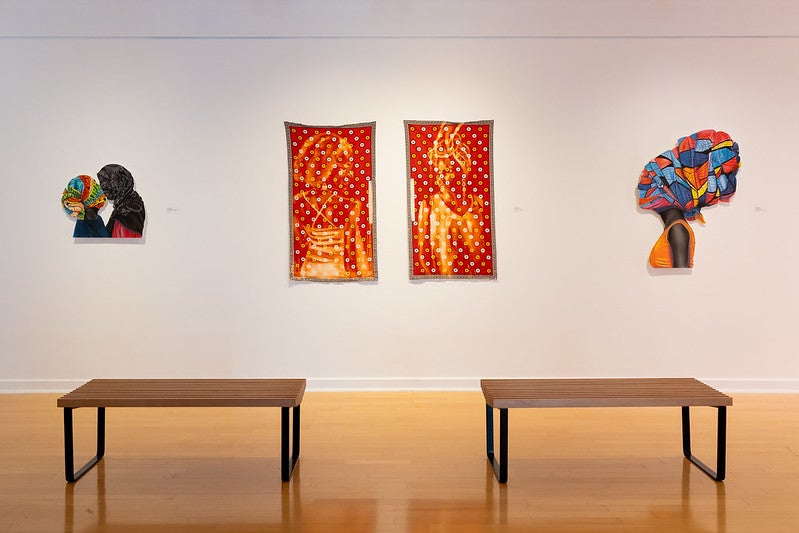
At the same time, the use of textiles as self-expression in the context of Kinuthia’s artworks also communicates that one is never what they seem. What appears to be a warm and inviting space, such as seen in Ukombozi, also possesses power and authority, where boundaries are drawn between access to a person’s body and that person’s prerogative to protect themselves.
Across Hail Reverend Njeri is Nyumba (2024). The Swahili word for house, Nyumba is a dome tent and assemblage of different textiles. At the center of its interior is a pedestal where a head rests, wrapped in white fabric with floral motifs and the word gereza, which has double meaning—in Swahili, it means prison and in Portuguese, it means church. Hanging above this wrapped head is a thick knot resembling a body that is contorted in discomfort. It reminds me of prisoners who are locked and tortured in cages. Yet, its suspension in the air is reminiscent of free fall and freedom. Entering this place of comfort is also devastating. The warmth and color is profoundly belied by what the artworks are communicating to its viewers—that at the surface of seeming comfort and happiness, there can be pain and struggle.
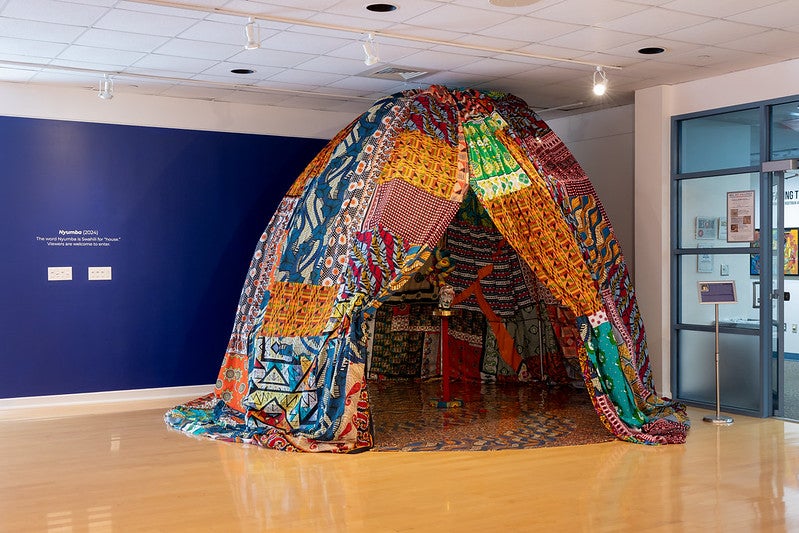
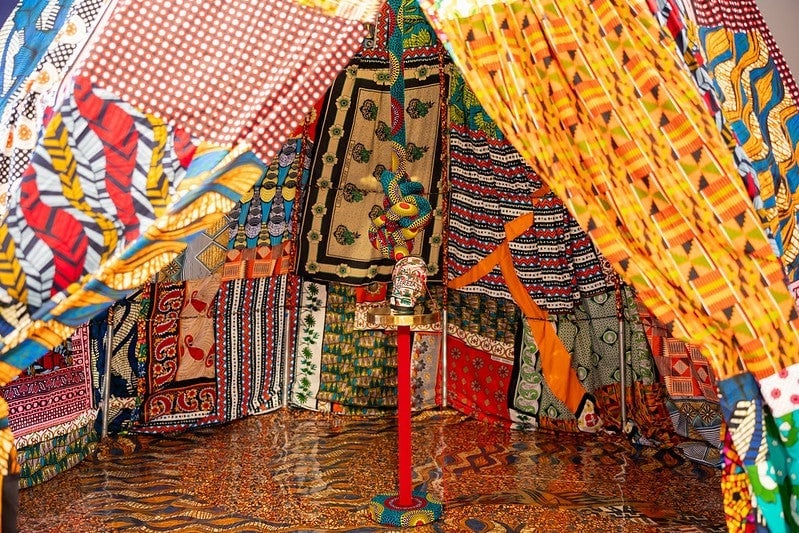
Kinuthia’s artworks in Ukombozi: Reclaiming Place and Self discuss the thorny and painful aspects of being a woman. In the pursuit of authenticity, women have to exist within tentative states to accommodate outside expectations and perceptions in the hopes that at some point, they can relax and finally be themselves. How in order to protect themselves, they sometimes have to contradict their own beliefs. As a woman and immigrant, I imagine these are situations and dilemmas with which Kinuthia empathizes. She is at the perfect position to talk about these issues, and the fact that she does is what makes the artworks in Ukombozi: Reclaiming Place and Self more than just an uplifting sight and pleasure to the senses.

